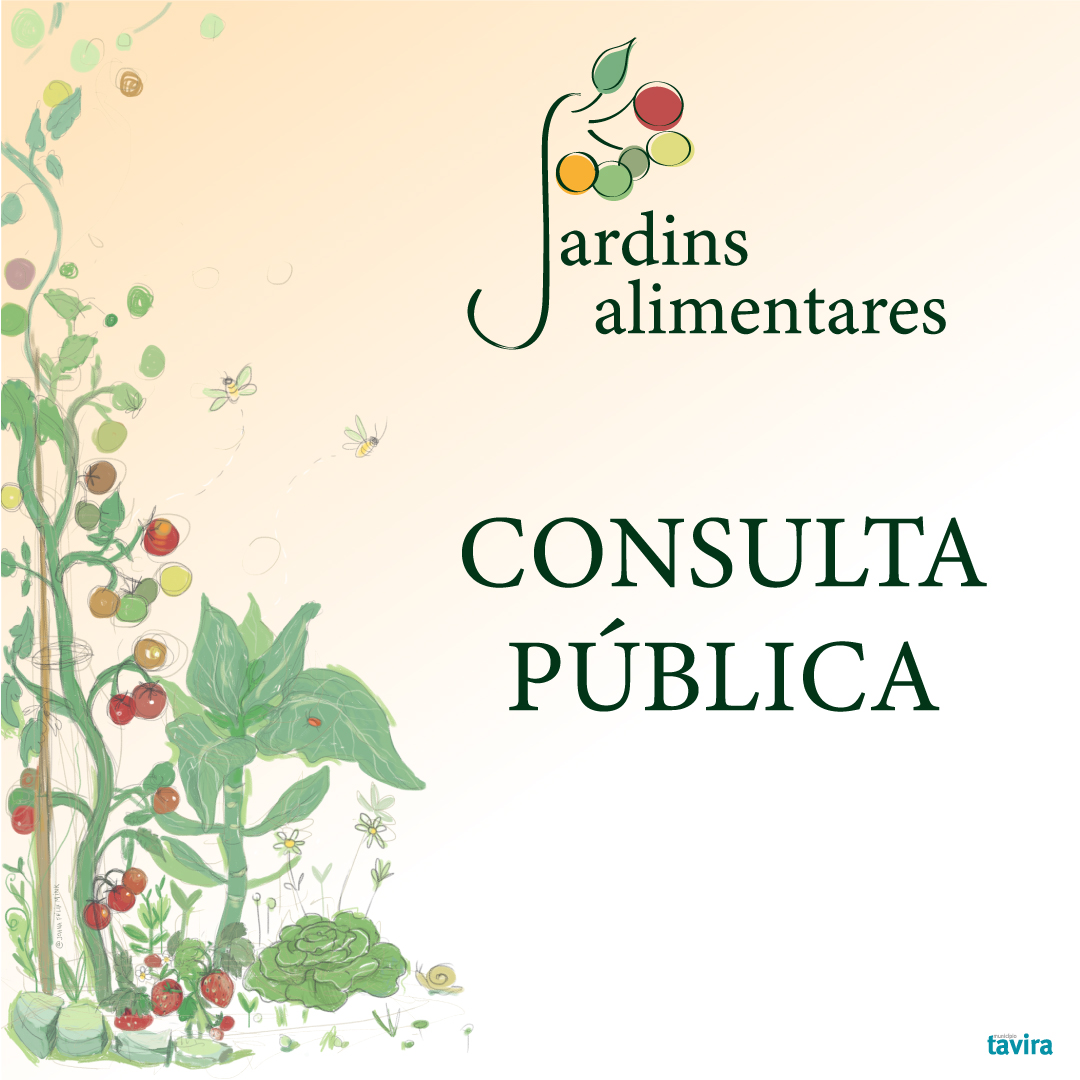Community garden – regulations consultation Tavira
Community gardens are becoming the backbone of communities, which is no less the case locally in Tavira.
I recently watched a video from New Zealand about community composting, and it has fired me up because the benefits to the soil and human interaction are enormous. I wonder if Tavira could add a community composting club/project to the community garden. I digress; more about composting in a future post.
Today I noticed on the facebook page Os Jardins Alimentares a post by Angela Rosa. It mentioned a consultation document about the regulations associated with community gardens in Tavira.
The message from the Camara says:
i️ Edital (extract) n. the 495/2024
Submit to the public consultation the draft Regulation of the Food Gardens of the Municipality of Tavira: https://cm-tavira.pt/site/participacao-publica/
![]() Participate via the platform https://tavira.onesource.pt/pt or send an email to camara@cm-tavira.pt
Participate via the platform https://tavira.onesource.pt/pt or send an email to camara@cm-tavira.pt
![]() The Food Gardens is a project that was born in the heart of the Participatory Budget of Tavira and which, in its implementation, adopted a participatory methodology so the version of the Regulation, now submitted for public consultation, was prepared by a co-design commission made up of citizens, technicians and public decision-makers.
The Food Gardens is a project that was born in the heart of the Participatory Budget of Tavira and which, in its implementation, adopted a participatory methodology so the version of the Regulation, now submitted for public consultation, was prepared by a co-design commission made up of citizens, technicians and public decision-makers.
I have translated the consultation document into English. It is only 18 pages long and the document says send comments to camara@cm-tavira.pt but the facebook announcements says comments should be sent to Jardimalimentares@cm-tavira.pt so I plan to send to both email addresses if I have anything useful to contribute.
There is not much time as the consultation appears to be closed on 15 April, so please read it and respond ASAP. It seems to me fairly straight forward and a good initiative.
Here is where you can find the document in Portuguese and English. Both documents are pdfs.
If you are new to the concept of community gardens – below are some of the aims according to the document. Personally I think I would add more about the various composting options so that the cycle is complete from home, to garden, to community. I mentioned composting to a friend yesterday and she reminded me that many local people give their kitchen waste to their animals, but that probably does not apply if you live in an apartment. So what happens to it?
1 – Food gardens aim to:
a) Promote healthy eating habits;
b) Provide a local and sustainable source of fresh food, contributing to the
community food security by reducing dependence on external sources;
c) Combat food waste;
d) Empower communities to grow their own food, promoting
food autonomy and reducing dependence on supply chains
distant;
e) Enable the strengthening of the food system in families;
f) Promote food sovereignty;
g) Integrate agriculture into the city, changing the relationship between agriculture and space
urban;
h) Encourage the practice of urban agriculture, optimizing the use of urban spaces for
food production and increasing the resilience of cities;
i) Enrich urban spaces, bringing more color and life to the city;
j) Value plant species from the Mediterranean landscape;
k) Contribute to the preservation of biodiversity by cultivating a variety of plants,
promoting ecological adaptation and genetic diversity;
l) Provide a space where people can relate to nature,
promoting mental well-being, reducing stress and providing a break from the
urban environment;
m) Promote the efficient use of water and raise awareness about water savings;
n) Promote the use of sustainable agricultural practices and organic production methods,
minimizing the use of chemicals and encouraging organic methods,
thus contributing to the preservation of the environment;
o) Encourage the environmental requalification of abandoned municipal land,
underutilized or inappropriately used;
p) Raise awareness among residents about respecting and defending the environment;
q) Serve as an educational center where the community can learn about production food, sustainable agricultural practices and the importance of biodiversity;
r) Enable forms of coexistence and lifestyle of the Mediterranean diet;
s) Strengthen and encourage the community spirit in the use, sharing and maintenance of public place;
t) Promote general well-being;
u) Encourage the practice of outdoor activities, social interaction and social cohesion, creating a conducive environment for exchanging knowledge and experiences;
v) Provide opportunities for the participation of various community groups, promoting social inclusion and equal access to food resources;
w) Promote a healthier lifestyle through the consumption of fresh and locally grown nutritious foods, reducing dependence on processed foods.
Below are some links to successful community gardens. I have also put a link to the community composting video I watched this week. Well done Ben & bEartha.
Secrets For Successful Community Gardens
Community Garden Statistics in 2024 (Latest U.S. Data)
The rise of community gardens in the UK
The Community Rescuing Food Waste From Landfill to Make Beautiful Compost | Ben & bEartha
Please share your inspiration resources. If anyone wants to talk about local composting please get in touch. Contact
